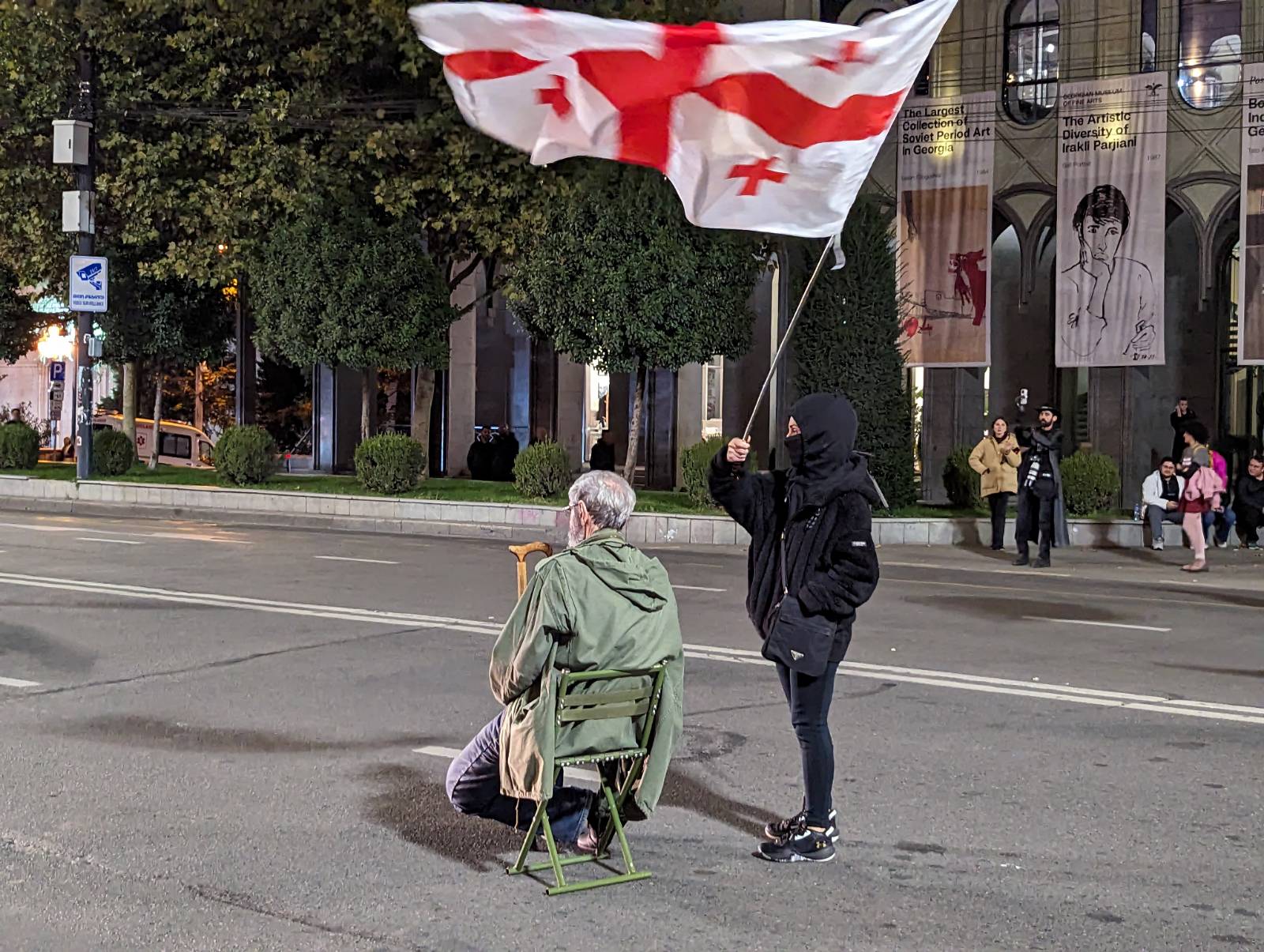The Interior Ministry said Sunday that 60 people had been arrested over the past three days for protest-related administrative offenses, mainly for blocking the road during nightly rallies on Tbilisi’s Rustaveli Avenue, near Parliament.
“Although patrol police officers repeatedly called on the rally participants not to commit offenses, as their small number did not grant them the legal right to block the road, the demonstrators ignored the warnings and again blocked the road, obstructing traffic,” the ministry said in an October 26 statement.
The Ministry called on protesters to refrain from “illegal actions” and warned that “measures provided under the law” would be applied against violators.
Around 100 people are estimated to have been arrested over the past ten days, since October 16, when the Georgian Dream parliament hastily amended several laws to make protest-related offenses, such as blocking roads or covering faces during rallies, immediately punishable by detention and to introduce criminal liability of up to one year in prison for repeat offenses.
Among those arrested in the past three days were opposition Droa party member Giga Lemonjava, who was sent to 14 days in detention; Zurab Tsetskladze, the father of Zviad Tsetskladze, convicted in one of the 2024 protest-related cases, who received seven days in detention; Vasil Ivanov-Chikovani, a former anchor at Georgia’s Public Broadcaster, who was sent to seven days in jail, while his wife was fined GEL 5,000; Formula TV co-founder and film director Giorgi Liponava, who received three days in detention; and the channel’s cameraman Nika Pataraia, who received four days in detention.
Online media outlet Publika reported that its journalist, Mamuka (Basti) Mgaloblishvili, who had been performing his professional duties covering the protests on Rustaveli Avenue and was wearing a press badge, was briefly detained near his home on October 24. According to Publika, two police officers put him in their car and questioned him to verify his identity, despite him showing his press card. The outlet added its journalist was held “unlawfully” in the police car for about 40 minutes before being released and driven back home, after officers told him, “We mistook you for someone else.”
The Interior Ministry later told Publika that Mgaloblishvili “was not detained but stopped for verification purposes, was not taken anywhere, his identity was checked, and he continued on his way.”
If those previously sent to administrative detention for blocking roads or covering faces during rallies repeat the offense, authorities can detain them under criminal procedure, as repeat violations are punishable by up to one year in prison.
Rustaveli Avenue has been blocked every night since November 28, 2024, when the Georgian Dream government, a month after the widely disputed October 26 parliamentary elections, announced a halt to Georgia’s EU accession process. The ruling party recently pledged to end the daily rallies on Tbilisi’s main avenue, as the number of protesters has dwindled over the course of nearly a year.
Also Read:
- 24/10/2025 – Two Foreigners Detained for ‘Blocking Road’ at Protest, One Faces Deportation
- 22/10/2025 – Police Arrest Dozens on Rustaveli Avenue
- 21/10/2025 – MIA: 14 Detained in Two Days Over Protests, Including One Sent for ‘Forced Treatment’
- 20/10/2025 – Court Sends Demonstrators to Detention as Police Round Up More Under Stricter Protest Laws
- 14/10/2025 – CSOs: Georgian Dream Toughening Laws to ‘Ban Peaceful Protest’
This post is also available in: ქართული
